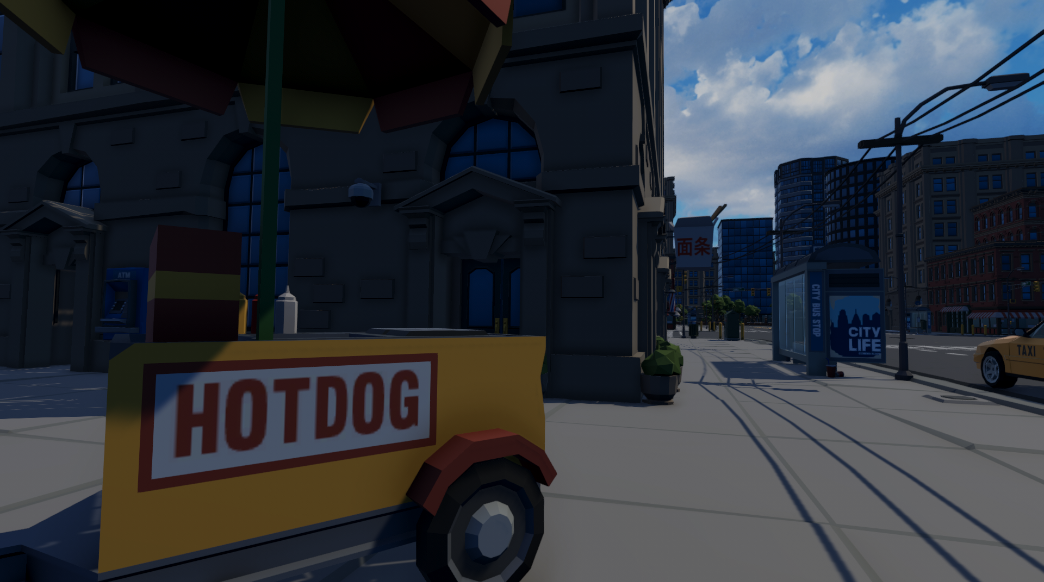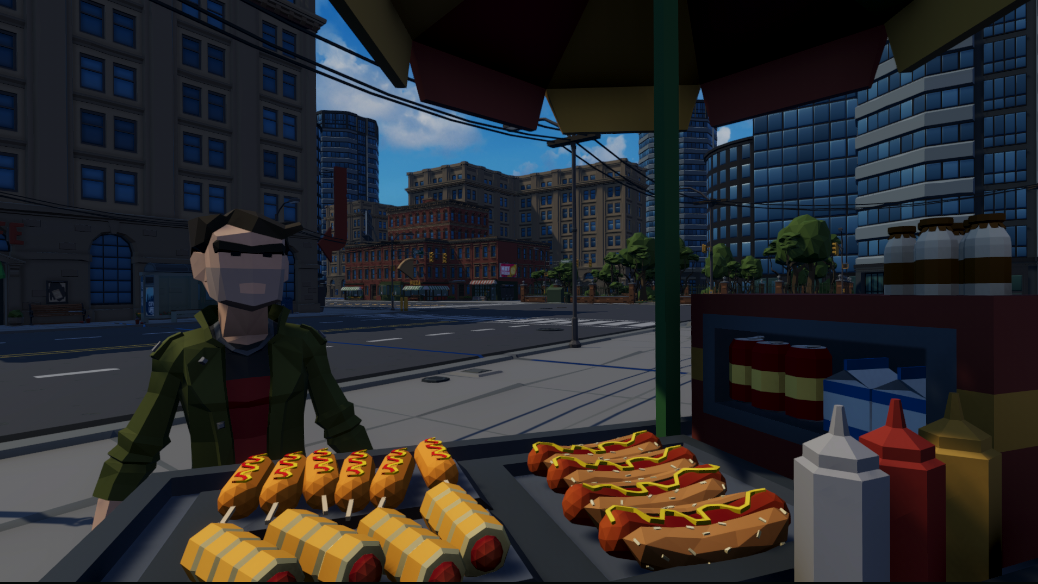I stumbled onto The 20 Game Challenge on reddit and it sounded at the time like a great idea as an alternative to game jams. Yes, I know. Game jams are all the rage for practice for people trying to break into the games industry...
But some of us have lives that we can't put on hold even for a short period. Some of us also would rather not try to learn under that kind of time pressure. Perhaps if I were at a different point in my life that wouldn't be such a problem, but my full time job is Mom to kids with special needs, and sometime in the next year or so I expect I'll be adding the role of caregiver to elderly relatives on top of that. I have too many real world obligations that have to be put ahead of this journey to just drop everything, hole up in the home office and work slavishly on a game for a day or two.
Enter The Twenty Game Challenge. The premise is simple enough; you recreate classic games one by one, following a fairly simple syllabus of suggested projects until you've acquired the skills needed to make your own personal project. The idea is that the process should take you twenty games (or less) to reach a level of skill roughly equal to someone who has chosen to practice via game jams with the same goal in mind. It's a sound enough theory, particularly when you apply the "no using tutorials" rule that is suggested as well. Forcing yourself to build things from scratch using only documentation, trial and error or using other basic sources of information helps ensure that you understand what you are doing, rather than simply copying and pasting someone else's logic.
In short, it's been enormously helpful!
Until it wasn't.
Or rather, I felt it was enormously helpful in theory, but that it was directed very much toward a goal that was too far away from where I wanted to end up. I completed the first two games in the syllabus and was eyeing up the third and fourth options when I realized that none of the suggested paths were really going to help me get where I needed to go. All of them were focused on combat or combat-adjacent mechanics (which isn't something I'm really all that interested in building), they were all heavily focused on 2D and the assumption that all game devs would want (or need) to gain skill in creating art assets (which I understand is something that may be almost universally expected, but again something that I have already decided to work around for now) and that very few of the suggested options were going to give me opportunities to create reusable code pieces appropriate for my planned projects.
Just to be clear, I DO have projects planned. Like most of those new to game dev, I came in with grand plans. Which were quickly shelved in favour of less-grand-plans. Which were in turn set aside for doubly-less-grand-plans. I'd love to make a great big, sprawling RPG. Of course I would! Who wouldn't!? I don't have anywhere near enough skill to tackle a project even half that size.
I didn't even have enough skill to tackle the farming sim; that was my "less-grand" option.
I do know that I don't want to waste the next six months of available time building clones of genre classics that I won't ever want to return to. I'm not planning to make a platformer, or a bullet heaven...
I'm here to make sims and puzzles and narrative adventures. So, let's make sims and puzzles and narrative adventures!
I started digging around for old classic games that might work as a starting point and came up with Lemonade Stand as a potential candidate. There's only one real problem. Lemonade Stand was kind of (read: really, excruciatingly) boring to play. It was the sort of game loved by people who like to count beans or read spreadsheets for fun. Kudos to anyone who played it and enjoyed it; you are a rare breed of gamer!
Still, it has some underlying mechanics that I know I will need to both understand and possibly reuse in other projects later, so that's where I've chosen to depart from The 20 Game Challenge in favour of my own modified syllabus. It'll be Lemonade Stand; but with hot dogs, because that's what I found in my stash of assets. Oh, and I'm going to inject something "fun" into it beyond simply setting a few prices and watching the sales numbers tick while the day rolls by. Because no one wants to watch paint dry as a game (except for a few folks, I'm sure. Has anyone made a paint-drying sim on Steam yet? I'm sure there's a market for it somewhere).
--------
I'm about twelve hours or so into this project now and have spent most of that time on the environment. Yes, I know that's backwards. Yes, I know that's a cardinal sin in indie game dev. I was sick all last week and half the one before, and so was everyone else at home. I picked easy things to do that didn't require a lot of brain power for me to accomplish. Also, I needed to learn/relearn how to manipulate prefabs in Unity anyway, so it was a good chance to both refresh and pick up new things (like vertice snapping! And changing colours of a premade item via UV filter changing tools). I also took some time to research ways to organize my code better since it was becoming a tangled up mess in Breakout due to my own lack of experience.
All in all, I'm happy with the work that got done and the amount of time it took. I won't be mucking around with the environment and set-dressings for the scene again until I'm ready to tackle alternative locations (at higher levels) so where it's at now is where it will stay until I get the rest of the mechanic parts implemented. I've got all the important bits in there; a street meat cart, goodies for sale, space for NPC customers, and plenty of visual background noise to make the world feel less like an empty box.
Working with asset packs from the Unity storefront suits my needs very well at this stage. While I do have some very minimal background in art, whatever skills I might have are woefully out of date and rusty. Once upon a time I was hoping to head into CGI for the film industry, but that was twenty-five years ago. The whole world is a very different place. There are different tools, different expectations, and quite frankly I'm a different person. I know very well how long it takes to really learn how to make artwork. It takes about as long as it likely does to learn to code well. Several years at best, for either job. Since I'm working alone, it makes far more sense for me to focus on one thing over the other. I'm learning programming because the games I want to create can't exist without that and I can't really buy a substitution for that skill. I CAN purchase art assets and I don't think there's any shame in doing so. Quite the opposite, in fact. I'm happy to support artists who are selling their work on the asset store! It's a great way to support people who are doing what they love to do and by spreading the cost over so many developers, they can keep prices at levels that people like me can afford to use.
Just to be clear; I don't condone asset flipping. That's a different beast entirely (trying to pass off a template game that someone else created without making it your own is simple plagiarism). Buying assets to fill a gap in your own skills while you're building something yourself is not.
Like many small time projects, I'm using Synty assets. Mostly this is because they were already in my possession when I started drafting up this project. I think I'd acquired them in a bundle sale at some point early on in my learning stages. When looking for something that might work for a Lemonade Stand clone, I rediscovered it inside my asset collection and figured it would be a great fit. I did add on a pack of low poly foods as well, because the Synty pack I own didn't have very many appropriate options for this project as their packages aren't really aimed at people making something of this nature. This is the first time I've ever used these packs, and also the first time I've ever used art assets in a game that I'm creating myself (not a Unity Learn related project). At the end of this project I'll be putting together both a splash screen and some form of credits page inside the game so I can make sure the creators of the various art and music assets get acknowledgement for their contributions. That'll be interesting... I'm not sure if they'll care or not, but I know that I do. I'd feel really uncomfortable if I didn't give credit where it was due.
I'd originally thought that perhaps I could finish this project inside of six weeks or so, but I'm not sure if that's a practical timeline or not. I don't have much frame of reference yet for how long things will take. I also can't predict what my schedule will look like. If everyone gets sick again, it'll put me back another week or two, but that really can't be helped. I can only work when I can work. I can only go as quickly as my brain will allow me to go. We will see. Six weeks would be roughly the end of March.
I remain hopeful.
Did you like this post? Tell us
Leave a comment
Log in with your itch.io account to leave a comment.